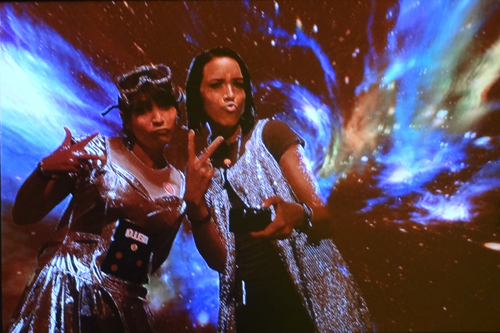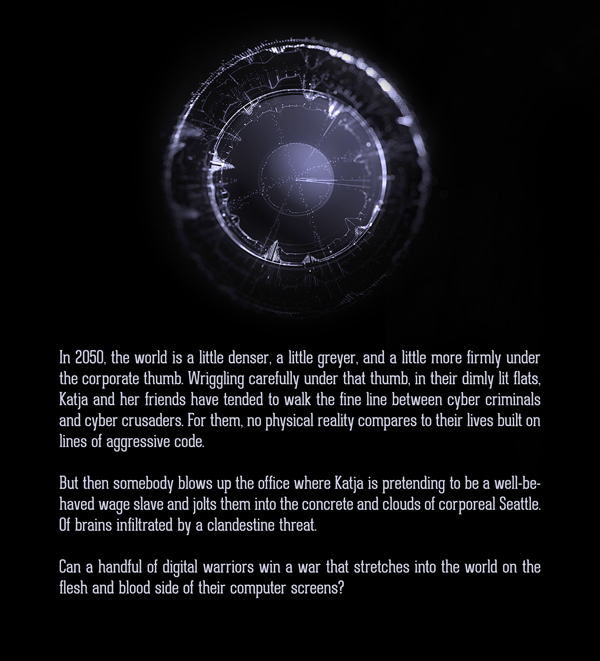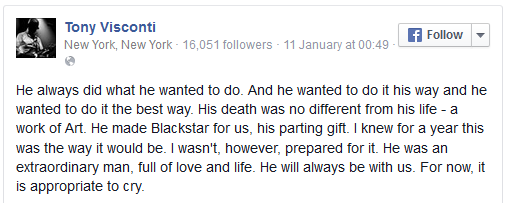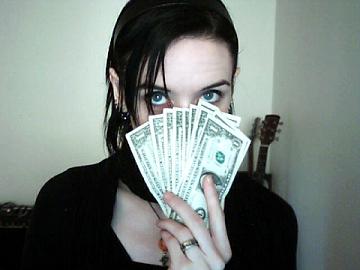My parents did not agree on all points when it came to parenting style. The one point that seemed to me to cause the greatest disagreement (though not arguments that we kids saw) had to do with one of my favourite things about how my dad parented. I’m not even sure that it’s one of which my other four siblings took advantage, so that exclusivity, in a world full of sharing, hand-me-downs, and limited resources, surely increased my enjoyment of it. My dad’s policy with disagreeing with him was this: if you can state your objections or contradictory case in a calm and logical manner, I might change my opinion, but I will certainly try to listen and understand your point of view. Massive, right?
In addition to being a very EMOTIONAL person (yes, all caps are warranted), I’m also very logical. That’s eroded a bit as I’ve focused my life on the pursuit of creative dreams, but it’s still there. It’s one reason I love writing code, I got great feedback as a technical writer, and I ended up with a degree in Philosophy. I wasn’t sure I’d end up there, though my dad predicted it very early on in my life and got surer after the many times I showed him the error of his logic and caused him to reverse his decisions on things like Going to a Party and so forth. I had too many things I loved and actually, given my intense, lifelong love of music; my early, applauded forays into writing; and the refuge I found being in theatre, I assumed I would go into the arts or at least critiquing the arts.
But philosophy worked for me on many levels, whilst also spoiling me in terms of discussing differing views with other people. In philosophy discussions, you bring in what facts you can when making an argument for your points of view, and you can even take courses on logic (which I did and loved) in order to try to help you in making sure that the argument you are building is logically sound. But there are few provable theories in philosophy, much as in the non-scientific parts of life, so you can’t just “google it†and walk away with answers. As a result, I spent many hours in passionate, intense discussion with my fellow students over issues.
In short, my life up to and through uni taught me how to disagree respectfully and logically. It taught me to research, to think carefully, to speak clearly, to leave out personal attacks (because they don’t actually help your argument), and to listen to others’ views. They taught me how not to be rude to someone even when I thoroughly disagree with them.
There were other things in my life that helped me learn and apply all that as well. For instance, I often disagreed with my peers on spiritual matters. But I applied the parts about being respectful even if you disagree, and I managed to accrue friends with a wide variety of beliefs, opinions, viewpoints, and the like with which I disagreed. And, especially with friends, we managed to discuss those things without getting heated.
However, once I was in uni, I found myself online constantly. And I used my intellect, logic, writing skills, and any other thing I could get my hands on—short of lies—to engage in arguments (aka to clearly, explicitly, in more detail than was needed, and with great sneering tell people online how wrong they were). Oh, the hours I’d spend on forums or email lists dissecting someone’s words. Oh, how I relished it and earned myself a bit of a reputation.
So, when I tell you that what this post is really about is why I don’t argue online any more (and even hold back often in person), I want to start with the understanding that I don’t avoid it because I can’t do it. I most certainly can do it and, for some meaning of the word, can win at it. I’m intelligent, educated, a researcher, a professional word writer (yes, really), determined, capable of turning off my compassion when in competition (which is part of why I avoid competition), and so forth. I can do it. I have done it. And, MRAs with their threats and SWATting and doxing and such aside, I don’t fear much of anyone. I have extremely healthy self-esteem, much to the sorrow of the so-called suitors who’ve tried to use negging on me, which means that I don’t think there’s anyone—not even famous people whose work I think is brilliant—who’s worth more than anyone else. And that includes me.
But, here’s the thing…
I don’t have loads of spare time or energy. I’d rather use what time and energy I have to create new songs, write new books and poems, or engage with people and cats I like (who, therefore, are more deserving of my limited time and energy). Especially given that I no longer get anything out of the online arguing and, no matter how respectful and logical, never seem to change anyone’s mind.
So, there’s your next reason: people seem wildly set in their opinions. Even in the face of overwhelming scientific proof. I’ve read essays on why that is, and I know our brains are wired in a way that tend us towards that. I might try to fight against it, because I like to believe there are actual truths and I want to know them. But it sure seems like most people don’t care to put up a fight.
When I look at how people engage, including the conversational markers that indicate they aren’t really looking for a discussion of differing opinions, there’s a complete lack of respect. Most of the time, the very first message to express disagreement is filled with nasty personal jabs against the person with whom they disagree. Someone who does that is probably actually there to shame anyone who disagrees with them.
On those occasions where I’ve tried to politely call someone out on that (“that sounded a bit uncivil†or something along those lines), I’ve run into one type of a display of a larger, problematic behaviour: the person often claims that they were just kidding or that I’ve misunderstood their tone because everyone knows that conveying tone in text is hard. How can you actually have a discussion if you won’t own your words? Granted, writing is a thing I do and for which I have a talent, but I think we’ve got millennia of written word to show that, in fact, a little effort can allow clear writing and (a related missing skill that stops me engaging) reading comprehension. In fact, it’s even easier in this age because emoticons are ridiculously widely used. Not sure you’re coming across as “just kidding†or wanting to be careful (without having to really take care with your words)? Throw in an emoticon before anyone accuses you of being uncivil 😉 (See how that works?)
On the topic of reading comprehension, I have a few issues that add to my reasons for not engaging. The second two of which are also issues in spoken communication, so you should already know the problem is a problem. First, things are written down. If you miss words, that’s because you went too fast. They’re right there. But people often skim or don’t take the time to really read it because…Second, everyone is in too big a rush to get in their next slam, so the words I might carefully write in response are wasted. And, third, everyone seems committed to assuming that those with conflicting points of view are writing with nothing but the nastiest intent. I’m not sure what the root of that is (I have theories, but I know this post has already gotten too long for the average internet reader if past length complaints are any indicator), but the result is that I could say or write, “I’m actually seeing that, on page X of book Y, Expert says (something other than what you said),†and it’s seen as an attack. (True story: I once did that in a Humanities class and a girl broke down in tears and I was called numerous unflattering names by many classmates the rest of the term because I was, obviously, a heartless monster.) In other words, I could say, “The article actually says dogs aren’t cats,†and people read, “You are a total knob and you should die and dogs aren’t cats and that is because you are the worst person ever and I am a monster!†But shoutier.
Of course, people don’t help encourage reading comprehension with their sloppy writing. I get that we aren’t all paid to write or naturally skilled at it, and I know that not everyone had the luxury of prioritising the education they got as children and holding onto the basic skills they might have learned then. That’s really okay. I’m no longer the 15-year-old who didn’t read notes from her boyfriend because his grammar and spelling mistakes pained her too deeply. I’m really trying to understand the intention behind your words. But it seems people have given up, even in professional correspondence and certainly in their unpaid hours, on using anything like proper grammar, spelling, or punctuation. Listen, I throw strict propriety to the wind in my personal hours as well. But I think we’ve all got to step back and ask ourselves whether someone outside our head wouldn’t appreciate a comma or a thought that is written out clearly, especially a nuanced thought that you’ve cut down to five words. I’m not being a “grammar Nazi†over it; I’m truly just looking for people to express their thoughts in a respectful and coherent way. (Not to be a jerk, but I’d note that I’ve got a number of friends for whom English is not a first language, who live in countries where English isn’t much spoken, who manage to write things that are much more elegant—in English—than some of the things I read from native English speakers who are trying to explain to me why I am wrong.)
And, actually, there’s another issue. Sure, part of even the most civil and logical of my philosophy discussions might include explaining why the opposing viewpoint is wrong. But the more important part, especially in the real world, is approaching it from the perspective of trying to explain why you believe your viewpoint is correct or even just why you hold your viewpoint.
In some cases, it’s actually okay if your viewpoint is based on your instincts, intuition, faith, or the like. But there are a great many more cases where it’s probably better and completely reasonable to have and expect reasons beyond that. Again, I don’t expect that every reason will be a scientific fact, but there are some lines (“Tuesday is the best day because dirt is green†is an example of a line I will draw…unless you live on a planet where dirt is sometimes green but only on Tuesday). And if you actually have no logic or facts or reasons beyond faith, instinct, intuition, covering that with hostility doesn’t make you more right. I might not agree with you, but I’ll respect you more if you just own it and do it without hostility.
On a more personal point, since I’m willing to own my issues, it pains me to admit that my brain often seems like a full, slightly faulty hard drive. Where I used to remember loads of facts and all my smart reasons for things, I now have to go back and re-research if someone wants me to justify myself. It doesn’t matter the hours put into researching objective sources in order to come up with my viewpoint. It doesn’t matter that I found it interesting or that I wanted to remember. My brain, these days, doesn’t even do much good remembering fun things, like that film I watched or book I read. I have no idea how my brain managed to work so well back when I wasn’t sleeping and was starving myself…But there it is. So in-person conversations of a controversial nature really can only happen healthily with people who are already proven friends and make room for this issue. I could re-research for online conversations, but that adds even more time and that makes it even less worth it.
There are other reasons, but those are the most pertinent (and this post has also gotten even longer than the much-past-140-characters length people online seem to prefer). If you’ve been in online arguments and not loved it, you can probably insert your own reasons.
In short: online arguments rarely change anyone’s mind, they are usually rife with poor communication practises, and they are unlikely to leave anyone feeling good (beyond whichever person thinks they’ve won and gets to be smug…but that’s a kind of ooky kind of feeling good). I don’t know about you, but that doesn’t sound like the kind of thing I want to spend my limited time and energy on.
So, to the nasty guy online today who thinks he won because I didn’t reply to his passive-aggressive, nasty, reason-free comment, it’s more that I’m trying really hard to be a grown up and not spend my time on you. (I can justify the time spent on this post as having wider applicability and as helping me work through the residual annoyance I’m feeling at how I was treated and at the racist views you were espousing. Especially since dancing, music, kittens, food, ranting aloud, and reading didn’t help. But writing this did!) And to the next person I walk away from instead of getting sucked into an Internet Argument, ditto.
Of course, I’m now considering re-opening my long-ignored LiveJournal so that I can rant out my frustration every time someone attacks (well, some times…every time would get excessive). I’m not a robot; I do have feelings. Including anger. I like to keep that out of all my other public places, aside from certain songs, because I really do like to keep my contributions to the world more on the positive side. Now that I’m no longer the online verbal assassin I once was.
 Remember that I am a serious space explorer. Is this how Earth girls selfie? (Sorry, Cat.)
Remember that I am a serious space explorer. Is this how Earth girls selfie? (Sorry, Cat.)





